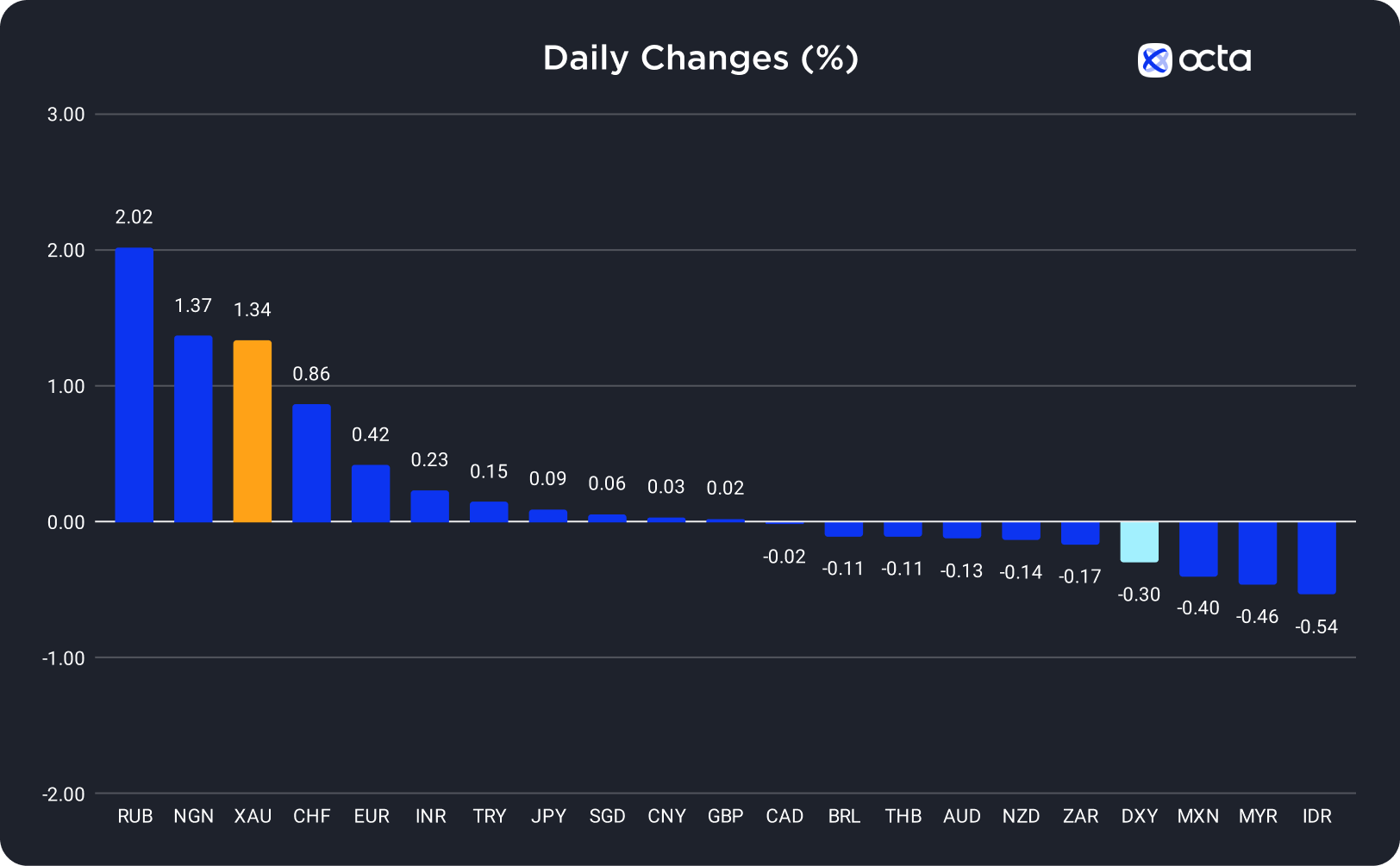Investing.com’s stocks of the week
On Thursday, the Russian rouble (RUB) was the best-performing currency among the 20 global currencies we track, while the Indonesian rupiah (IDR) showed the weakest results. The Swiss franc (CHF) was the leader among majors, while the US dollar underperformed.
The Gold Price Hits a Three-Month High on Safe-Haven Demand
Gold (XAU) rose for the third consecutive day on Thursday, driven by the ongoing Middle East tensions and the anticipation that the Federal Reserve's (Fed) rate-hiking cycle may end soon.
While gold has gained due to the war, buying exhaustion is fairly imminent,' said Daniel Ghali, the commodity strategist at TD Securities. Indeed, XAU/USD has approached a strong resistance level near 1,980, which might encourage some bulls to take profits. Apart from that, there are no reasons to be explicitly bearish on gold as fundamental pressure remains predominantly bullish. Tensions in the Middle East are fuelling safe-haven demand, while the Fed is signaling a cautious approach to the U.S. monetary policy. In his latest speech, Fed Chair Jerome Powell emphasized the importance of the recent tightening of financial conditions and highlighted risks caused by geopolitical tensions. Still, he noted that inflation hasn't cooled down to the Fed's target level. Nevertheless, the market currently prices in only a 20% probability of another rate increase this year, according to the CME's FedWatch Tool.
XAU/USD was rising during the Asian and early European sessions. Investors should closely monitor the developments in the Middle East. 'Spot gold is expected to extend gains into a range of 1,998–2,010 USD per ounce, as it has broken a resistance at 1,972,' said Reuters analyst Wang Tao. Overall, there is no news that could trigger high volatility in XAU/USD in the near future.
The Outlook for GBP Remains Bearish
The British pound (GBP) was essentially unchanged on Thursday, but the trading session was quite volatile.
GBP/USD has decreased by almost 2% over the past two weeks as the U.K. macroeconomic data highlighted high inflation and a struggling jobs market. Moreover, traders turned risk-averse due to Middle East tensions. 'Sterling has been trading with its typical high beta to global risk conditions in recent days,' said Nicholas Rees, the FX market analyst at Monex Europe. In addition, traders worry that the Middle East crisis might lead to a sharp rise in energy prices, which will be a major problem for oil-importing countries like the U.K.
GBP/USD was relatively flat during the Asian session but fell sharply in the early European session after the worse-than-expected Retail Sales report. Retail sales declined by 0.9% in September, showing a much deeper decline than the forecasted 0.2%. The data may prompt the Bank of England (BOE) to adopt a less hawkish approach to the monetary policy. Indeed, in his latest interview, the BOE governor Andrew Bailey said that he expects to see a 'noticeable drop' in October's headline inflation figures, suggesting that he will be less likely to continue lifting the rates.
